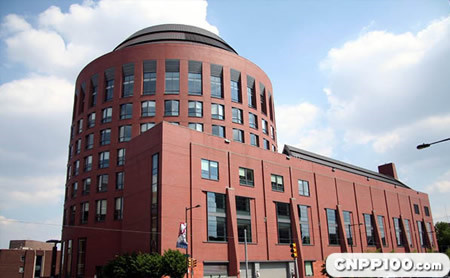
Founded in 1881 in the United States, the well-known MBA business school is the first university business school in the United States, which has a high reputation in the field of economics research and management education, and is a business school specializing in cultivating financial and management talents
Founded in 1881 in Pennsylvania, Wharton is the first collegiate business school in the United States, with a high reputation for all major economics majors and management education, and has been ranked among the top in various rankings of American business schools. The Wharton School has long been regarded as the most pioneering business school in the nation.
Wharton devotes a great deal of time to communicating with students, listening to students' opinions, involving them in reform and management, and having them supervise the professors' classes. All of Wharton's administrative reforms revolve around the students, which makes the school vibrant, and all reforms have achieved satisfactory results.
The School is not only nurturing future business elites, but also committed to providing in-depth research for the business community. And it is the world's leading business knowledge innovation agency. To achieve this, it is necessary to conduct research with a mastery of interdisciplinary methods and to connect with the business community. Wharton's 18 research centers play such a role: leadership and resilience management, entrepreneurship management, e-commerce and business reform. These research centers allow professors, students, and members of the business community to work together to study and analyze business issues.
The story of the world's first business school begins with Joseph Wharton, an Philadelphia entrepreneur who was born into a wealthy Philadelphia business family in the 18th century and amassed a considerable fortune by running the Bethlehem Steel Company and the American Nickel Company. In 1881, at the age of 55, without a son to carry on his family name and business acumen, he donated a portion of his assets to the University of Pennsylvania to establish the Wharton School. His original intention was to train young people who had inherited the wealth of their predecessors to become the country's new business leaders. Since the establishment of Wharton, two directors and 11 deans have created Wharton's rigorous, pragmatic, innovative and enterprising school spirit.
Since its founding in 1881, Wharton has created many firsts for European and American business schools: from 1881 to 1910, Wharton published the first business textbook; In 1921, the first business school industrial research center was founded, and in the same year, the MBA degree was established; In 1970, the first MBA in health management was established; 1973The first SME Entrepreneurship Center was established; 1978 The first double degree in management and science and technology was established.
Wharton currently has nearly 4,600 undergraduate, MBA, EMBA and doctoral students. There are a total of 250 full-time and part-time faculty members in 11 faculties. Each year, Wharton conducts executive training programs for more than 8,000 participants. Major national and international business publications have ranked Wharton as one of the best business schools in the world for several years in a row.













